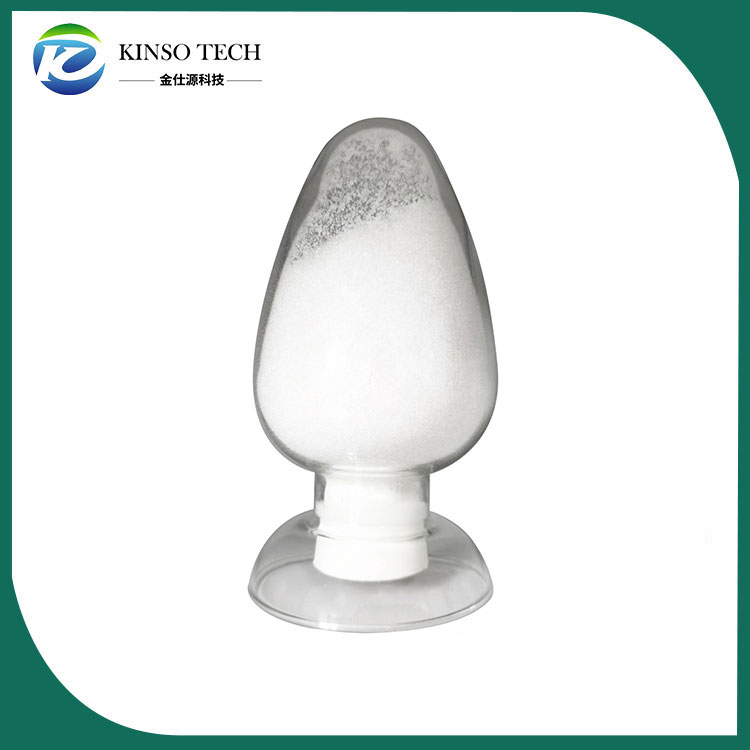How Are Intermediates Shaping the Future of Chemical Manufacturing and Industrial Applications?
2025-02-26
In the vast world of chemical manufacturing, intermediates play a crucial role in transforming raw materials into end products that impact almost every aspect of modern life. From pharmaceuticals to agriculture and automotive manufacturing, intermediates are essential in producing chemicals that are further processed into finished products. But what exactly are intermediates, and how are they shaping the future of chemical manufacturing and industrial applications? Let’s dive into the significance of intermediates and their growing influence across industries.
What Are Intermediates and How Do They Fit into the Chemical Process?
Intermediates are chemical compounds that serve as the building blocks or stepping stones in the synthesis of more complex substances. They are typically created during the manufacturing process and are not usually sold as final products themselves. Instead, intermediates undergo additional chemical reactions to form final products, which are then used in various applications across industries.
For example, in the pharmaceutical industry, intermediates are crucial for synthesizing active ingredients that eventually become medications. Similarly, in the automotive industry, intermediates like resins and plastics are processed into components used in vehicle manufacturing.
These compounds can be organic or inorganic and often play a pivotal role in facilitating reactions that lead to the creation of the desired end product. Whether derived from petroleum, natural gas, or renewable sources, intermediates are essential for industries that rely on complex chemical processes.
Why Are Intermediates Important for Chemical Manufacturing?
1. Cost Efficiency and Scalability
The use of intermediates significantly improves the cost efficiency and scalability of manufacturing processes. Rather than starting from scratch, manufacturers can use intermediates to simplify the production of complex substances. By breaking down the synthesis process into stages, manufacturers are able to produce high-quality products in a more efficient and economical way.
For instance, producing a high-purity chemical directly from raw materials may require complex and expensive steps. However, using intermediates allows manufacturers to focus on specific reactions at each stage, reducing production costs while maintaining consistent product quality.
2. Faster Production Times
Intermediates also help speed up the manufacturing process. Rather than going through multiple stages to synthesize a final product, manufacturers can buy or produce intermediates that have already undergone part of the synthesis process. This allows for a faster transition from raw materials to finished products, meeting the demands of industries that require rapid production times.
In industries like pharmaceuticals, where time is of the essence, intermediates play an essential role in quickly creating drug compounds that can be tested and brought to market more rapidly.
3. Customization for Diverse Applications
One of the significant advantages of intermediates is their versatility. They can be customized to meet the specific needs of different industries. Chemical manufacturers can modify the properties of intermediates to suit particular applications, allowing them to produce products with a high degree of precision.
For example, in the electronics industry, intermediates might be tailored to create specialized components like semiconductors, which are essential in everything from smartphones to industrial machinery. In agriculture, intermediates can be used to produce fertilizers, pesticides, and herbicides that meet the needs of different crops and environments.
4. Safety and Environmental Impact
Intermediates can also help improve the safety and environmental impact of manufacturing processes. By enabling more controlled and efficient chemical reactions, intermediates reduce the need for hazardous substances in final products. Additionally, intermediates can help optimize chemical processes to minimize waste and emissions, contributing to more sustainable production methods.
In industries like automotive manufacturing, where environmental regulations are strict, intermediates are used to create materials that meet both performance and sustainability standards. This is critical for companies aiming to reduce their environmental footprint while maintaining high product quality.
Applications of Intermediates in Key Industries
1. Pharmaceutical Industry
In the pharmaceutical industry, intermediates are vital for the production of active pharmaceutical ingredients (APIs). APIs are the core components of medications, and intermediates are used in their synthesis. Many pharmaceutical drugs, such as antibiotics, cancer treatments, and pain relievers, rely on complex chemical processes involving intermediates.
For example, intermediates are used in the creation of compounds like aspirin, where each stage of the process involves creating a different intermediate that is chemically transformed into the final product. The use of intermediates enables pharmaceutical manufacturers to produce drugs more efficiently, ensuring that treatments reach the market faster and at a lower cost.
2. Agriculture and Fertilizers
The agricultural sector also relies heavily on intermediates. Fertilizers, pesticides, herbicides, and other agricultural chemicals are often made using intermediates that are specifically designed for those purposes. By controlling the chemical structure of intermediates, manufacturers can develop products tailored to specific crops or environmental conditions.
For instance, a key intermediate in the production of fertilizers is ammonia, which is then transformed into different nitrogen-based compounds used to enhance soil productivity. Similarly, herbicides and pesticides are synthesized using intermediates to target specific pests or plant diseases, increasing crop yields and protecting food supplies.
3. Automotive Manufacturing
In the automotive industry, intermediates are used to produce various components, including plastics, resins, and metals that are integral to vehicle construction. Polymer resins are commonly used as intermediates to create car bumpers, dashboards, and interior panels. Additionally, intermediates are used in manufacturing lubricants, coatings, and adhesives that improve vehicle performance and durability.
The automotive industry also uses intermediates to create catalytic converters, which help reduce harmful emissions. The precise chemical reactions involved in these processes rely heavily on the use of intermediates to ensure that the final products meet environmental standards.
4. Electronics and Semiconductors
The electronics industry benefits from intermediates in the production of semiconductors and various electronic components. Intermediates like silicon wafers and gallium arsenide are essential in the creation of integrated circuits, transistors, and microchips. As technology continues to evolve, the demand for advanced electronic devices, such as smartphones, computers, and wearable gadgets, has driven the need for more complex intermediates that can be used in the manufacturing of these components.
5. Textiles and Polymers
In the textile industry, intermediates play an essential role in the production of synthetic fibers, dyes, and other materials used in clothing and textiles. Polymers, for example, are used as intermediates to produce fabrics like polyester and nylon. These fibers are then woven into textiles that are used for everything from clothing to upholstery.
In addition, intermediates are used in creating dyes and finishes that enhance the appearance and functionality of textiles. For example, intermediates may be employed to produce stain-resistant or water-resistant coatings for fabrics, improving the durability and performance of the finished products.
The Future of Intermediates in Chemical Manufacturing
As industries continue to innovate, the role of intermediates will only become more critical. The growing demand for sustainability, efficiency, and customized products is driving the development of new intermediates that can meet these needs. Advancements in green chemistry and biotechnology are likely to influence the production of intermediates, leading to more eco-friendly manufacturing processes that use renewable resources and minimize environmental impact.
Additionally, as industries such as electric vehicles and renewable energy grow, the demand for intermediates used in batteries, solar panels, and other technologies will increase. This opens up new possibilities for intermediates to support the global transition toward cleaner and more sustainable technologies.
Conclusion
Intermediates are indispensable components in modern chemical manufacturing, enabling industries to produce high-quality products more efficiently and cost-effectively. From pharmaceuticals to agriculture, automotive, and electronics, intermediates are at the heart of many innovations that shape our daily lives. As industries continue to evolve, intermediates will remain essential in meeting the growing demand for customized, sustainable, and high-performance products. Understanding the role of intermediates and their potential is key to unlocking the future of chemical manufacturing and industrial applications.



